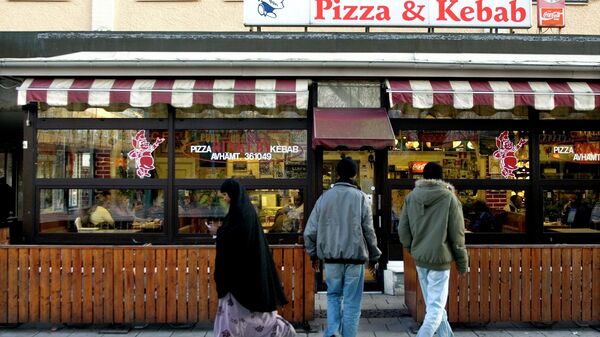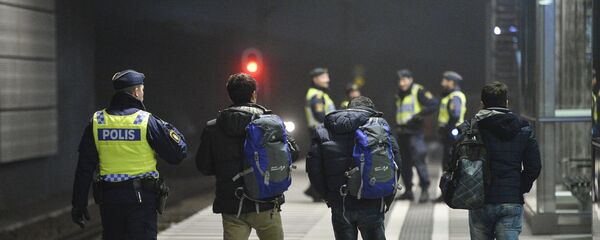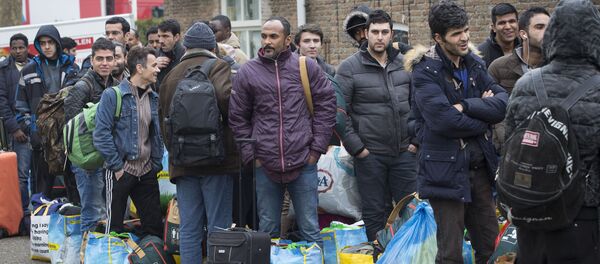Earlier on Thursday, a spokesperson of Sweden’s minister for home affairs told Sputnik that rejected asylum seekers facing deportation would stay in special facilities and receive financial aid for several years before being expelled to the countries of origin.
"If you get rejected with your application and if you don’t want to get back voluntarily, then the financial aid can be reduced," Elias said, without specifying how much less the aid would be.
On Wednesday, Home Minister Anders Ygeman revealed Swedish plans to expel up to 80,000 failed asylum seekers. He mentioned that deporting migrants would take several years.
"If they get rejected and are waiting for deportation, they will still be living in same accommodation as before, either in their own or in our accommodation," Elias added.
According to the spokeswoman, if an asylum application gets rejected, a person has to wait four years before submitting again, but asylum seekers can appeal the decision in court.
The Swedish migration authority said the country of origin was an important factor while considering the application, but each case was reviewed individually.
"In some cases the war is not in the entire country, depends on which city they [asylum applicants] come from," Elias said.
SEM fielded a total of 39,523 asylum bids last year, 9,966 of them from Eritreans. The second largest group of asylum seekers (7,831) came from Afghanistan, followed by 4,745 Syrians and 2,388 Iraqis. In 2014, the Swiss migration agency registered 15,758 asylum claims.
The main reason behind this stark influx of refugees is continuing hostilities in the refugees' countries of origin, SEM indicated. It predicted that the number of arrivals would rise steadily throughout 2016, although no figures were given.
"But SEM assumes that the number of asylum claims in 2016 will, in all probability, be hardly lower than in 2015 (around 40,000)," the agency said on its website.




